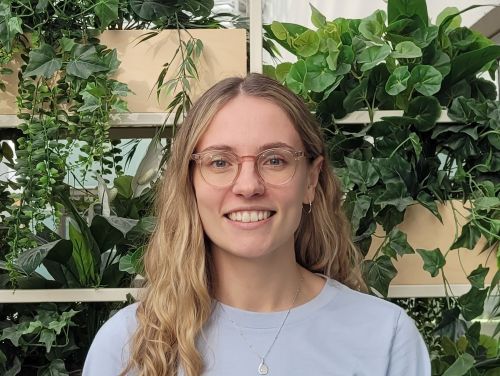ApconiX Welcomes Dr Katie Newman

ApconiX is delighted to welcome Dr Katie Newman who is joining the ion channel laboratory team and will be working with Dr Kimberly Rockley on our work around seizure liability.
https://www.apconix.com/apconix-welcomes-dr-katie-newman/
Academic Career
Katie grew up in Winchester in Hampshire and moved to Manchester when she started her undergraduate degree. Volunteering in a hospital with older people during her A-levels, she saw a lot of people with dementia, and it piqued her interest in the brain early on. She then worked as a carer in a hospital during a gap year after her A-levels and looked for a degree specifically in neuroscience. Manchester was one of the few universities offering such degree. “Even if I had done a more general bioscience degree, I would have picked all the brain units and ended up specialising in neuroscience anyway I think,” Katie added.
Katie’s degree being an integrated MSci, the 4th year consisted of a 9-month lab-based project. For that project she worked in a diabetic neuropathy lab investigating how high blood sugars can affect tissue structure and nerve supply of the bladder and gut in a rat model of hyperglycaemia. This is an important area of research as bladder and gut dysfunction are prevalent but under-recognised complications of diabetes. She says she really enjoyed working in a lab for 9 months and the experience it gave her.
Katie was made aware of animal use during her MSc project and became trained in animal handling, but she realised then it was not for her and looked for a PhD project to find alternative models, in particular stem cells models. Her thesis was to investigate the causes of genetic small vessel disease (SVD) which affect the small blood vessels of the brain and are a leading cause of stroke and vascular dementia. As many animal models of SVD do not accurately replicate the human disease, alternative methods are needed to advance our understanding. Using an alternative in vitro approach with induced pluripotent stem cells (iPSC) and CRISPR gene editing technology, she created a mutant iPSC line to model and investigate the vascular mechanisms of a specific genetic SVD.
Since she joined in April, Katie has now officially submitted and passed her PhD thesis and viva.
Working at ApconiX
Katie found the job application as she was writing up her PhD thesis and really liked the sound of our research in seizure. As well as bringing her back to her neuroscience roots, developing cell-based assays to reduce the use of animals in research particularly appealed to Katie. Finally, she liked the idea of contributing to life-saving drugs going on the market.
In the lab, she is mostly taking care of client work on the Microelectrode Array (MEA) and contributing to further validation of the seizure liability assay. With the MEA, using human-derived neuronal stem cells, potential seizure liability can be demonstrated by measuring electrical activity.
Dr Michael Morton, Director and Co-founder commented, “Katie has joined ApconiX straight from her PhD. In the short time she has been with us, Katie has become a valuable and capable member of our growing iSLA/MEA team.”
Interests Outside Work
Katie is a real foodie. She loves cooking and baking, saying she “doesn’t discriminate” between sweet and savoury. She makes a really good Guinness cake. She is also quite sporty, mentioning hiking, running and cycling as other hobbies. In August 2024 she completed the Yorkshire Three Peaks Challenge, hiking Pen-y-Ghent, Whernside and Ingleborough in under 12 hours. Katie is also a keen sewer and is working up to making her own clothes.





















